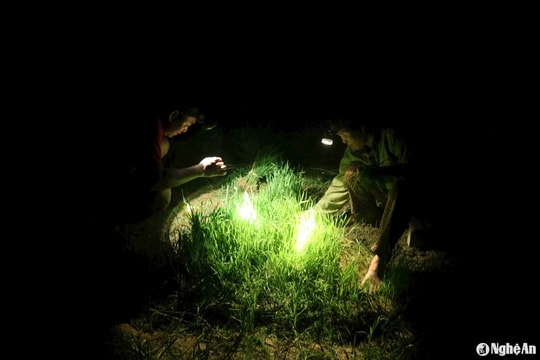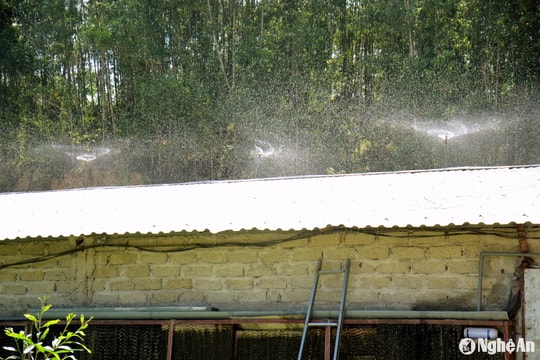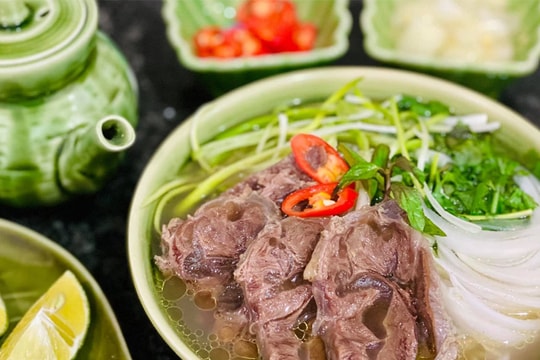Rice noodles are expensive on hot days
During the intense heat, households making vermicelli and cakes in Do Luong increased their capacity and output many times over to meet consumer demand.
Entering the hot summer days is also the "season" when Thanh's family members are busiest in the year. While quickly using her hands to receive each batch of hot noodles running out of the press, Thanh shared the production process of this rather special food.
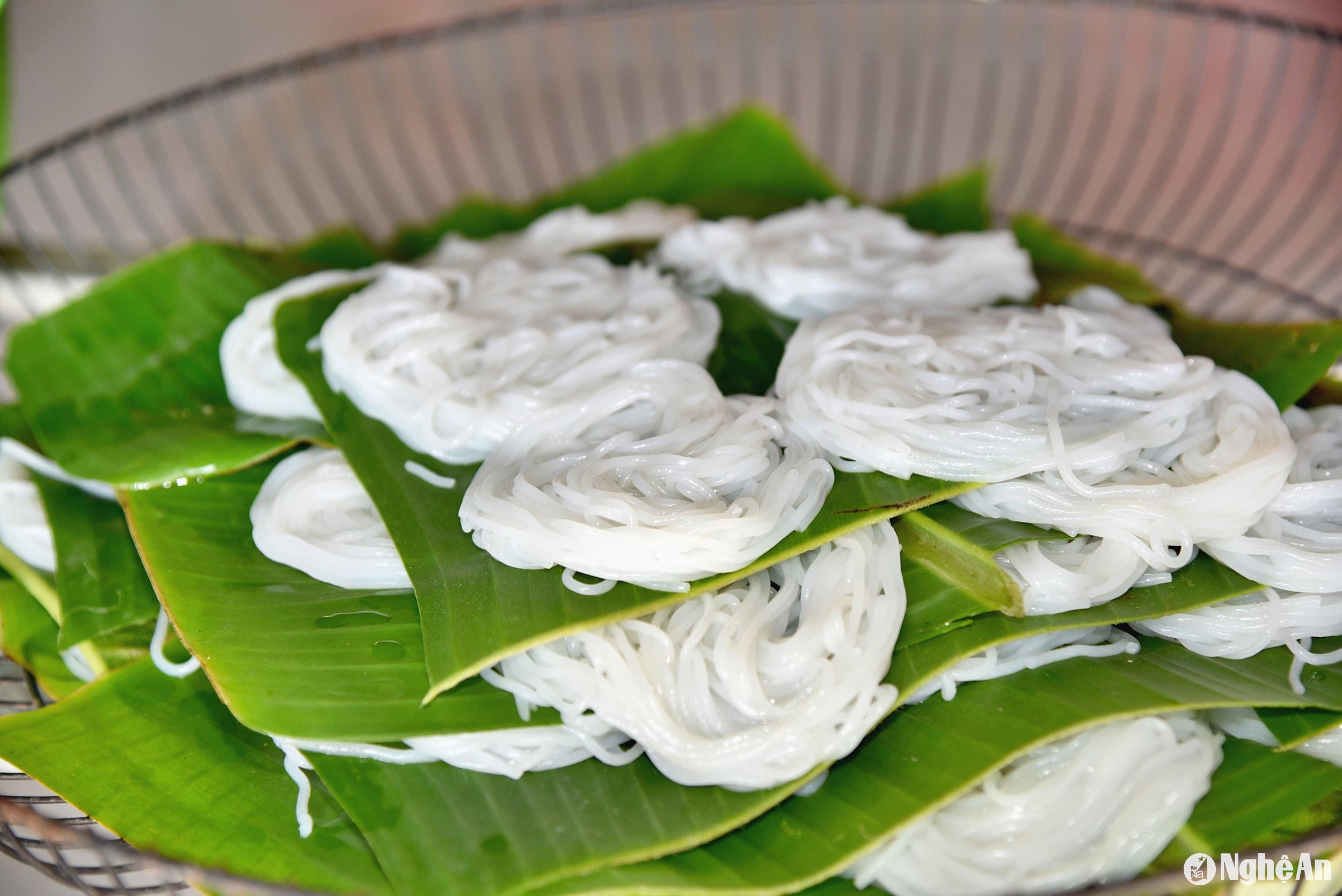
Early in the morning, after making hot batches of noodles, her family members are busy delivering the goods. Most of the orders are placed in advance by phone and are all to familiar eateries and restaurants in Nam Son, Dang Son communes, Do Luong town and some other locations.
On a normal day, Ms. Thanh uses about 3500kg of rice, producing about 700kg of vermicelli. However, on days when market demand increases, such as weekends, holidays, and especially during hot weather, orders nearly double, so the raw materials and quantity of "goods" must also double or triple. There are days when she grinds 800-900kg of rice, so she has to hire more workers and wake up early from 2-3am.
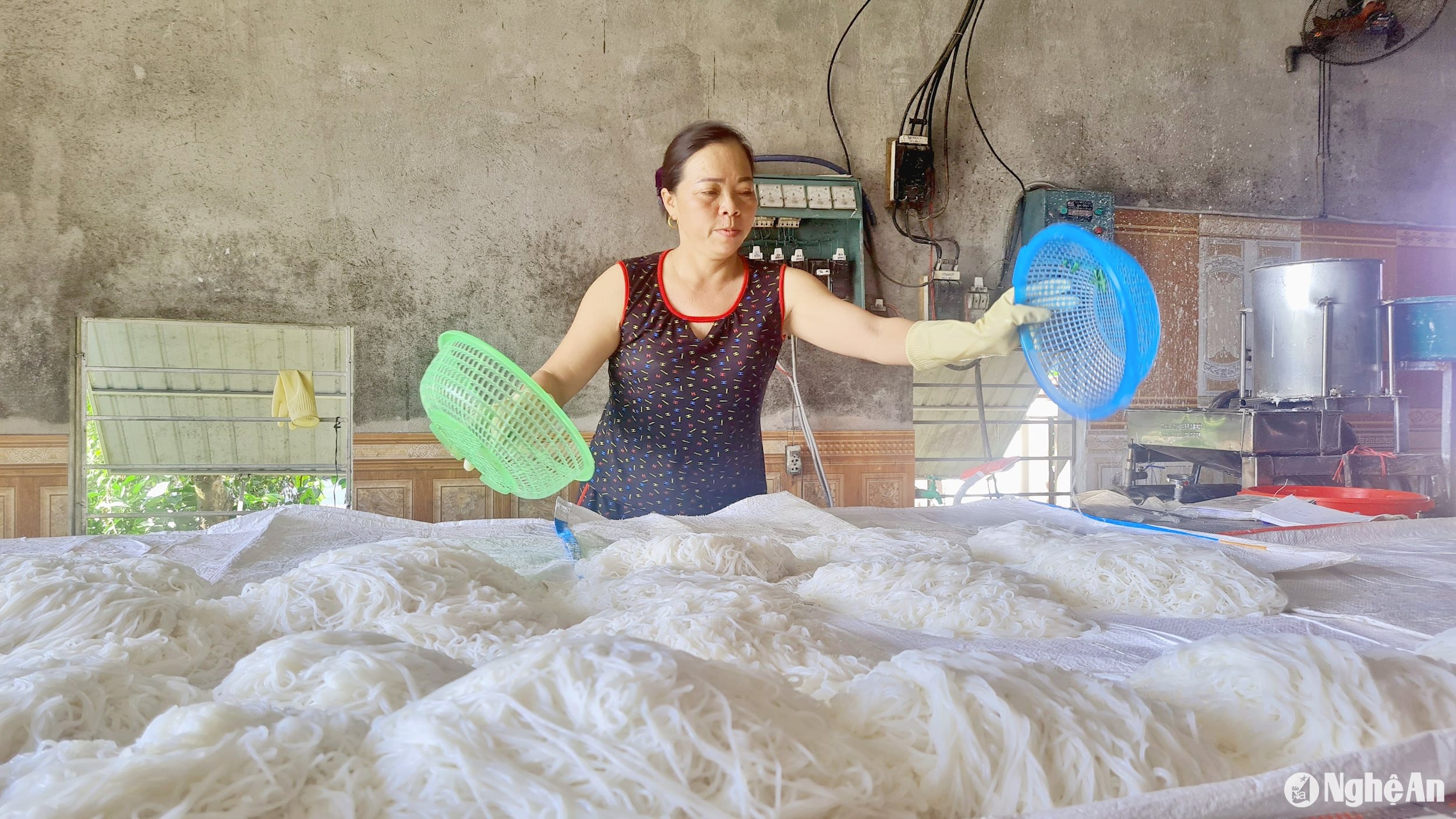
Long-time workers like Ms. Thanh in Tan Son commune all follow one principle, which is to choose delicious ingredients and ensure food safety for the products, without using additives. To do so, no production step can be skipped. The rice is washed and soaked overnight (about 8-10 hours), then put into a mill to make fine powder. After the rice is milled, the powder is soaked for 3 days.
“This soaking process is very important. During those 3 days, we must observe the condition of the flour and the weather to adjust the soaking temperature and change the water regularly every day. When the soaked flour meets the standards, it will be put into a machine to dry the flour before being put into the grinder, mixer and fiber pressing machine…
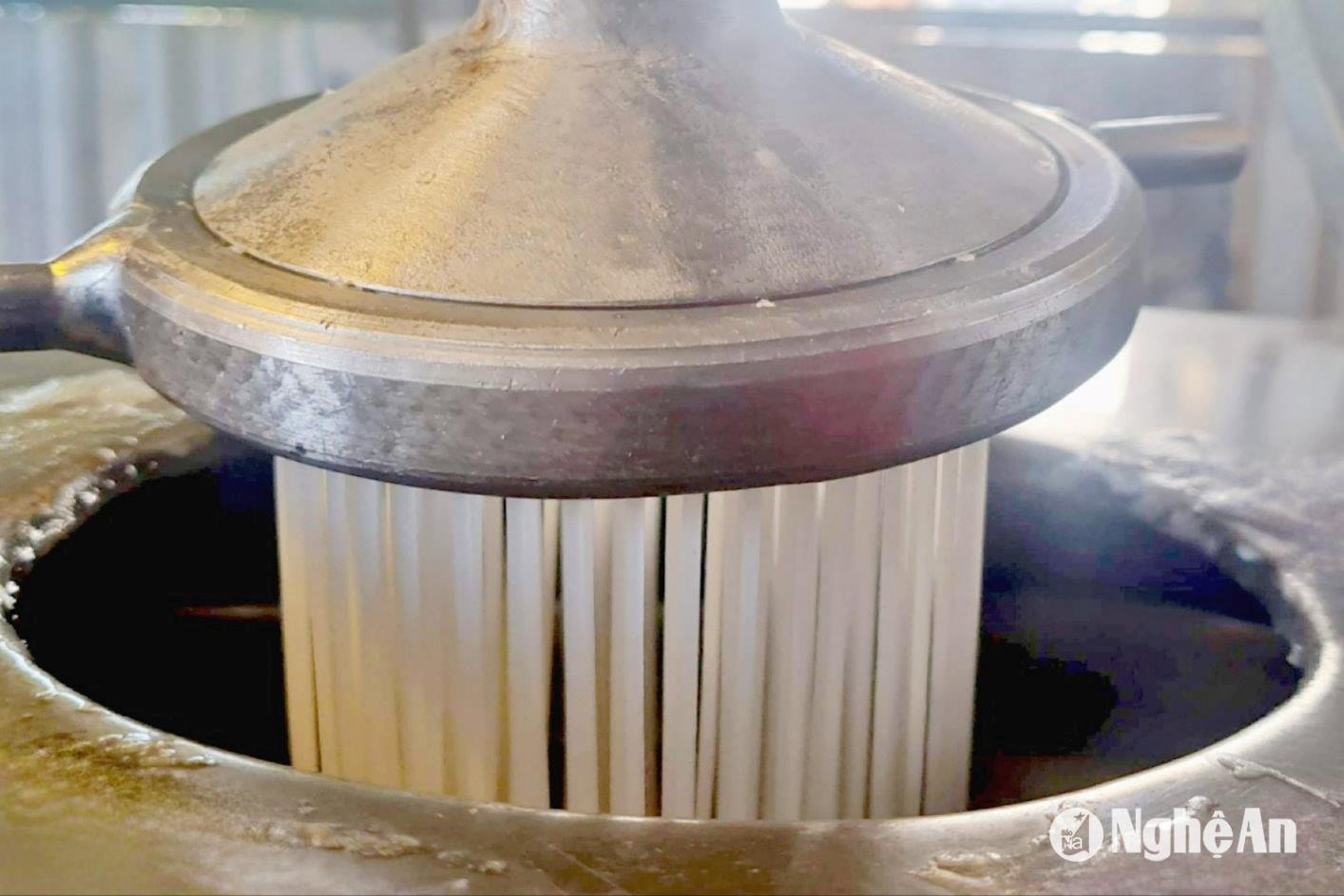
Regarding raw materials, rice must be carefully selected. For the traditional vermicelli production facility in Tan Son commune, Khang Dan rice is always the chosen raw material, and it must be ensured that no other types of rice are mixed in. In Tan Son commune, there are currently few households producing this type of rice, so Ms. Thanh must contact and place orders to have enough raw material supply.
In the vermicelli and cake craft village in hamlet 6, Tan Son commune, one of the factors that helps local households maintain clean production and ensure hygiene is the system of roads and canals that have been invested in and built synchronously, spaciously, and cleanly.
Along with the traditional profession of making vermicelli and cakes, in Tan Son commune there are also many households producing ham and sausage, gradually forming food processing villages, bringing stable income to the people.
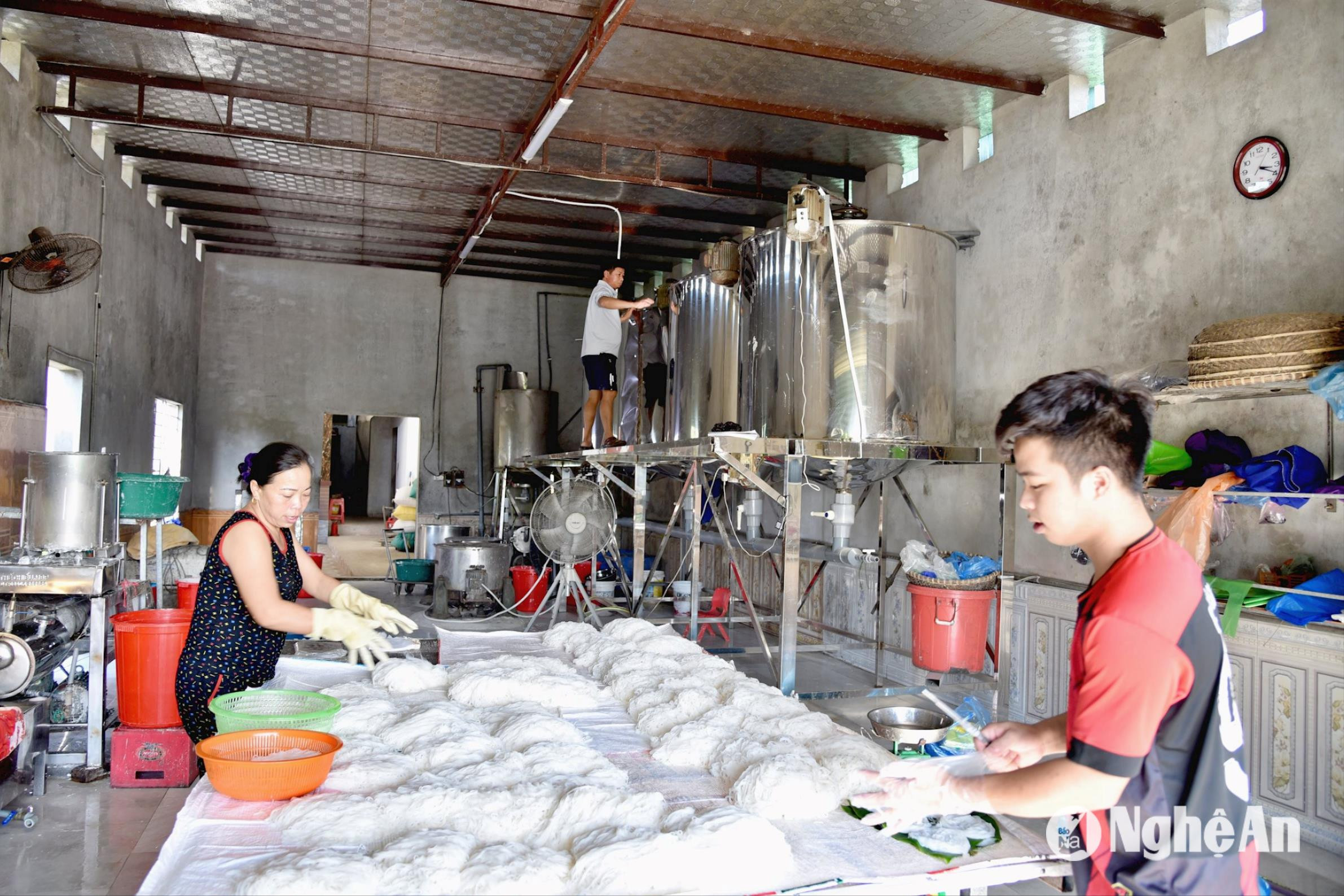
Mr. Nguyen Ba Chau - Deputy Head of the Department of Agriculture and Rural Development of Do Luong district said that Tan Son people have a long tradition of making vermicelli and cakes. The whole commune currently has about 7-8 establishments producing vermicelli and cakes, concentrated in hamlets 8 and 10, and most of the households have invested in machinery and produced independently. There are only a few households that produce manually in a "combined" way by fermenting rice themselves and renting machines from other households to grind the flour.
Among the criteria for building new rural districts, ensuring environmental sanitation is considered a difficult criterion, so it is the first one that the government pays attention to and directs to implement, especially in craft villages and cooperatives.
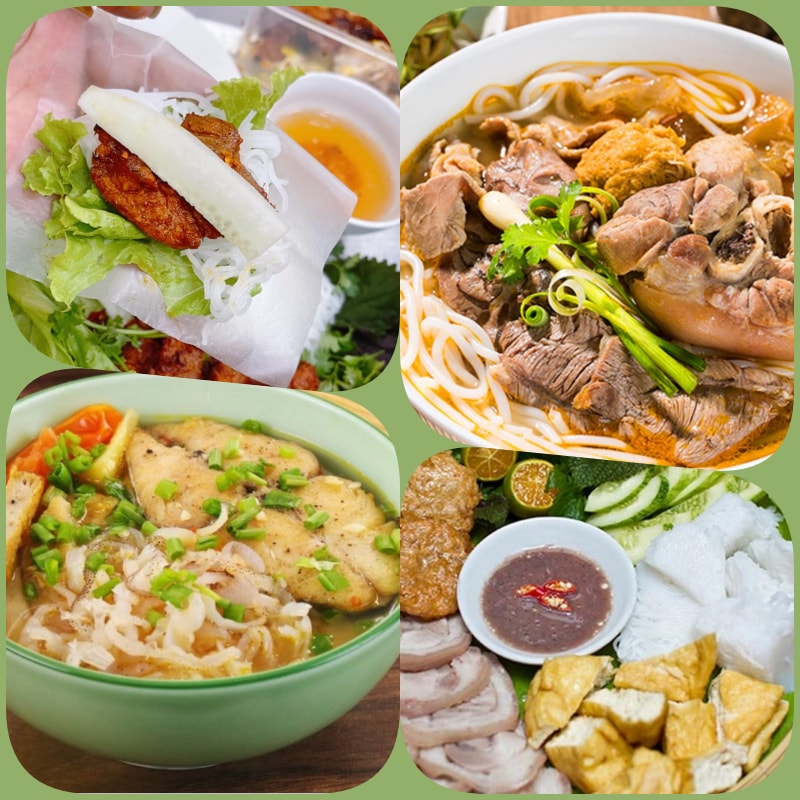
In the past 2 years, Do Luong has recognized 2 more craft villages, bringing the total number of craft villages in the district to 8. The craft villages operate quite effectively in production and business, creating many jobs and increasing income for rural people.
Along with the support, inspection and control of the authorities at all levels, craft villages also proactively pay attention to ensuring environmental hygiene associated with brand promotion and trade promotion. From there, helping craft villages develop and gradually build and supplement the list of local OCOP products.

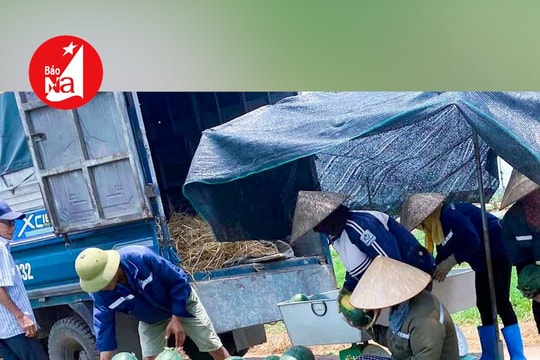
.png)
